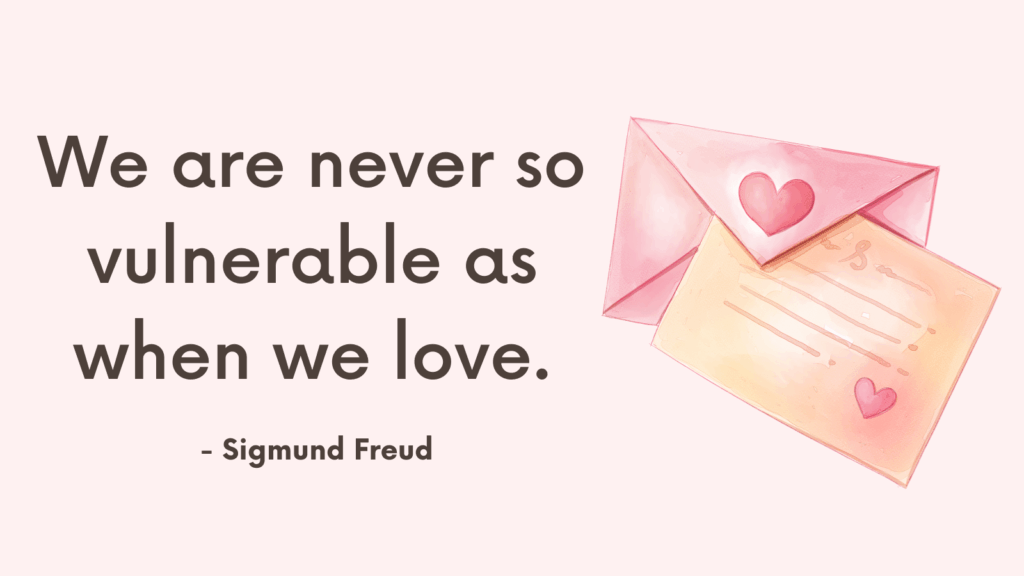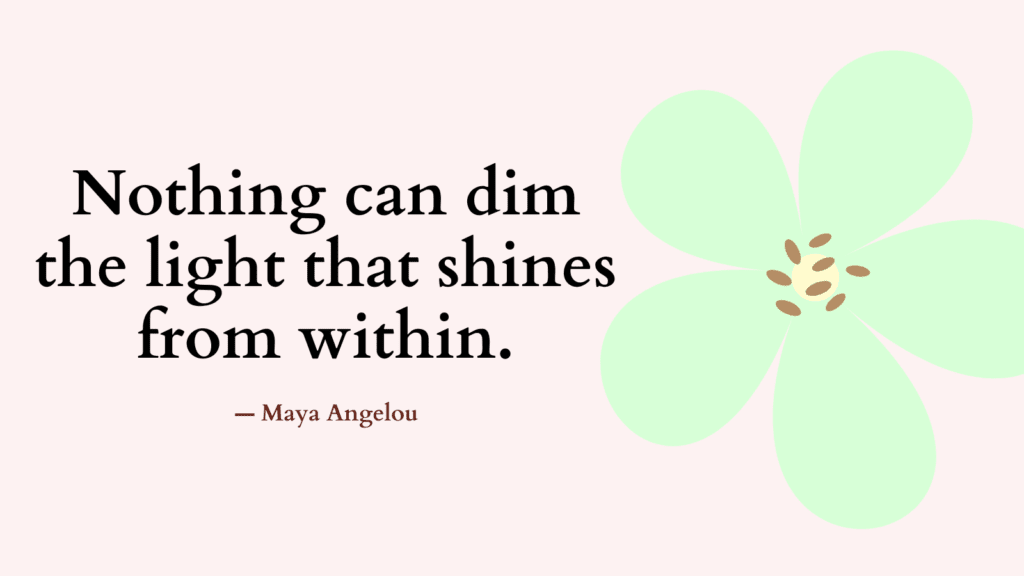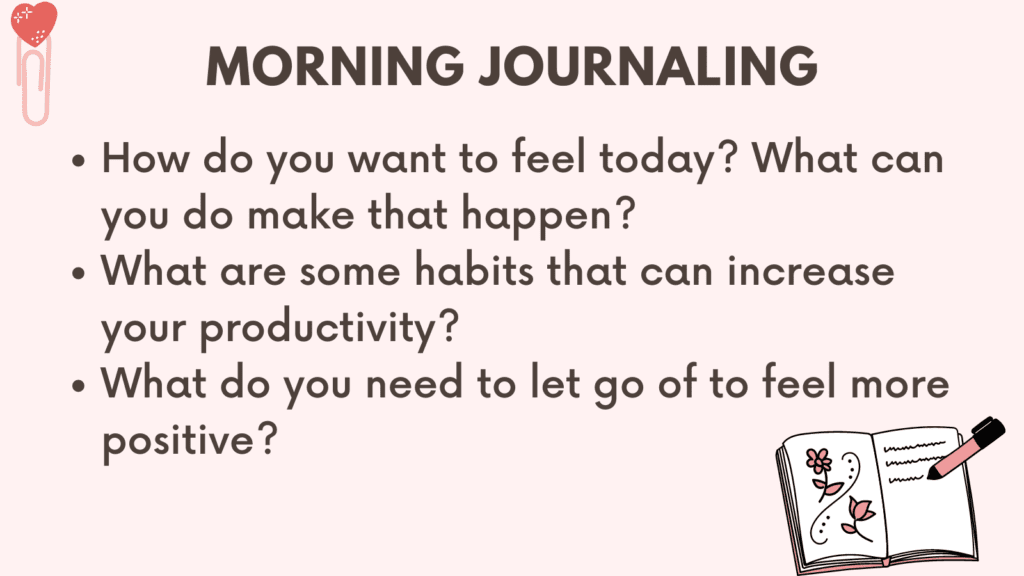This post contains some of best journal prompts for anxious attachment.
What Is Anxious Attachment Style?
Your attachment style is turned on when you are upset and need attachment figure for reassurance. Once soothed, your attachment system turns off.
People who didn’t consistently find such comfort in their caregivers or partners, develop an insecure attachment style.
Anxious attachment is one type of insecure attachment style.
You may have an anxious attachment style if you can relate to the following:
- You love to be very close to your romantic partners, yet often fear that your partner does not wish to be as close as you want them to be.
- You are very sensitive to fluctuations in your partner’s moods and often, you take your partner’s behaviors too personally.
- You often find it difficult to explain what’s bothering you or ask for you need.
- You tend to feel unhappy when not in a relationship.
Journal Prompts For Anxious Attachment
1. Investigate any recurring childhood memories related to attachment. How might they be affecting you now?
2. Write a letter to your younger self, offering words of reassurance and support.
3. Identify three core beliefs you have about relationships. Are they helpful or harmful?
4. Reflect on any negative beliefs you hold about yourself. Are they influenced by anxious attachment?
5. How do you typically express or cope with anxious attachment behaviors?
6. What are your biggest fears about being vulnerable in relationships?
7. Describe the ideal characteristics you seek in a partner. Are they realistic or influenced by anxious attachment?
Related: How To Fix Anxious Attachment Style In 5 Steps
8. Write a letter to someone who has triggered your anxious attachment, expressing your emotions without sending it.
9. Describe a time when you practiced setting healthy boundaries in a relationship.
10. Journal about a time when you received appropriate reassurance from a partner.
11. Write a letter forgiving yourself for any mistakes you believe you’ve made in relationships.
12. Describe an ideal self-care routine that supports your emotional well-being.
13. Journal about a time when you resisted engaging in anxious attachment behaviors. How did it benefit you?
14. Reflect on any negative experiences or traumas from past relationships. How do they contribute to your anxious attachment?
15. Journal about a time when you felt abandoned or rejected. How did it impact your attachment style?
Related: Anxious Preoccupied Attachment Style (What Is It & How To Overcome It?)
16. Describe a situation where your anxious attachment behavior was triggered and reflect on what may have been the underlying fear driving it.
17. Write a letter to a trusted friend or family member describing your anxious attachment patterns and ask for their perspective and support.
18. Reflect on any recurring anxieties or worries that arise in your relationships. Can you identify their root causes?
19. Journal about a time when you experienced jealousy or possessiveness in a relationship. What strategies can you implement to manage these emotions in a healthier way?
20. Imagine your ideal relationship dynamic with a secure partner. Describe how it would look and feel. What steps can you take to move towards this vision?
Related: Is It ROCD Or Am I Not In Love? Top 4 Powerful Ways to Overcome Relationship Anxiety And ROCD
21. Reflect on any patterns of seeking validation or excessive reassurance from partners. How does it impact your relationships? How can you work towards building internal validation?
22. List three affirmations or positive statements you can repeat to yourself when anxious attachment thoughts arise.
23. Journal about a time when you experienced unconditional love or acceptance from someone. How did it influence your attachment style?
24. Reflect on any patterns of people-pleasing or sacrificing your own needs in relationships. How can you prioritize self-care while still maintaining healthy connections?
25. Write a letter to your anxious attachment style, acknowledging its presence and expressing your commitment to healing and growing beyond it.
26. Journal about a time when you formed a secure attachment with a friend or family member. What made the bond strong and secure?
27. Reflect on any fears or barriers that prevent you from seeking therapy or professional help for your anxious attachment. How can you overcome them?
Related: Best 50 Affirmations For Anxious Attachment
28. Reflect on a recent situation where you felt the need for constant reassurance from your partner. What triggered this anxious response, and how could you address it differently in the future?
29. Journal about a time when your anxious attachment led to self-sabotaging behaviors or pushed your partner away. How could you respond differently in a similar situation?
30. Reflect on any past experiences of being neglected or dismissed in relationships. How have these experiences influenced your anxious attachment style?
31. Describe a situation where you successfully communicated your needs and fears to a partner, resulting in a positive resolution. What strategies did you use?
32. Journal about any patterns of seeking validation outside of relationships (e.g., through work, achievements, or social media). How might this relate to your anxious attachment?
33. Reflect on a time when your anxious attachment led to feelings of resentment or anger toward your partner. What steps can you take to express these emotions in healthier ways?
34. Write a letter to your romantic partner, explaining your anxious attachment style and how they can support you in moments of insecurity or anxiety.
35. Imagine a scenario where you encounter a triggering situation related to your anxious attachment. Describe how you would respond with self-compassion and self-soothing techniques.
36. Reflect on a past relationship where your anxious attachment was not reciprocated or understood by your partner. How did this impact your self-esteem, and what lessons can you learn from it?
Related: Best 10 Books On Healing Anxious Attachment
37. Write a letter to your future self, envisioning a time when you have developed a more secure attachment style. What steps can you take today to move closer to that vision?
38. Describe a situation where you experienced a breakthrough in managing your anxious attachment. What strategies or tools helped you overcome your anxiety?
39. Reflect on any potential triggers or patterns that heighten your anxiety in relationships. How can you create a self-care plan to address these triggers proactively?
40. Journal about any fears or insecurities you have in relationships. What are their origins, and how can you address them in a healthy and constructive manner?
41. Write a letter to a future partner, explaining your anxious attachment style and how they can support you in moments of insecurity or anxiety. What do you hope they will understand about your needs?
42. Imagine a scenario where you feel triggered by situations that commonly elicit anxiety in relationships. Describe how you would respond in a way that promotes self-soothing and self-care.
Related: Best 10 Anxiety In Relationship Books
43. Reflect on a past relationship where your anxious attachment had a negative impact. What lessons can you learn from that experience, and how can you apply those lessons to future relationships?
44. Reflect on your expectations in relationships. Are they realistic or influenced by your anxious attachment? How can you adjust your expectations to foster healthier connections?
45. Write about any patterns of clinginess or possessiveness you have noticed in your relationships. How do these patterns affect your sense of security and the dynamics within the relationship?
46. Journal about your fear of rejection or abandonment. Where do these fears stem from, and how can you challenge them to reduce their impact on your relationships?
47. Reflect on your communication style in relationships. How can you improve assertiveness and express your needs without relying solely on reassurance-seeking behaviors?
48. Write about any signs of progress or growth you have observed in managing your anxious attachment. How have you incorporated new coping skills or healthier relationship habits into your life?
49. Describe a situation in which you practiced trusting in a relationship, despite feelings of insecurity. How did this trust-building exercise impact your attachment style and overall well-being?
Related: Top 15 Journal Prompts For Relationship Anxiety
50. Write a letter to a supportive friend or loved one, expressing gratitude for their understanding and patience regarding your anxious attachment. Share what you have learned from their support and how it has positively impacted you.
51. Reflect on any habits or behaviors that may unintentionally push others away in relationships. How can you modify these patterns to foster stronger and more secure connections?
52. Journal about your relationship with vulnerability. How comfortable are you with being open and emotionally exposed? What steps can you take to embrace vulnerability while managing anxiety?
53. Journal about the role of self-worth in anxious attachment. How does low self-esteem contribute to seeking excessive reassurance or validation from others?
54. Journal about any conflicting desires you experience in relationships – such as craving intimacy while simultaneously fearing engulfment or abandonment. How can you navigate these conflicting emotions?
55. Reflect on a recent situation where you may have been self-critical or judgmental towards yourself. Describe the event, your thoughts, and the emotions you experienced.
Related: Do I Have Relationship Anxiety Quiz
56. Journal about the importance of establishing boundaries in relationships. How can setting clear limits and communicating your needs contribute to creating a more secure attachment?
57. Describe any positive qualities or strengths you possess that can help you navigate anxious attachment. How can you leverage these strengths to cultivate healthier relationships?
58. Journal about a time when you felt securely attached. What made it different from other experiences?
59. List five positive qualities that you bring into relationships.
60. Describe a supportive relationship you have had in the past. What made it feel secure?
61. Journal about a time you managed anxious attachment in a healthy way. What strategies did you use?
62. How do you imagine a secure attachment would feel like? How could you work towards developing it?
63. Practice self-compassion by writing three things you appreciate about yourself.
64. Write a list of ten activities that help you feel more grounded and centered.
65. Reflect on the progress you have made in managing your anxious attachment. Celebrate the small victories and acknowledge the growth you’ve experienced.
Related: Top 8 Tips On How To Get Past Infidelity Triggers And Build Trust Again (+FREE Worksheets)
Jealousy Worksheets
What Does Being Secure Look Like?
You know you’re more securely attached if you can relate to the following:
- Being loving and warm in your relationship comes naturally to you.
- You enjoy emotional intimacy without being overly worried about your relationship.
- You effectively communicate your feelings and needs to you partner.
- You enjoy pursuing interests apart from your partner while still feeling loved by them.
- Even when you disagree, you expect your partner to respect and consider your point of view.
- You’re comfortable depending on your partner and having them depend on you.
Related: Earned Secure Attachment: What Is It And How To Become More Securely Attached?



